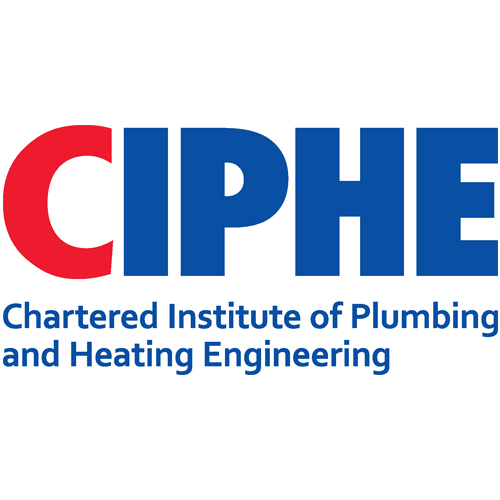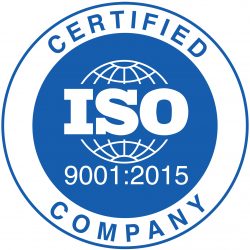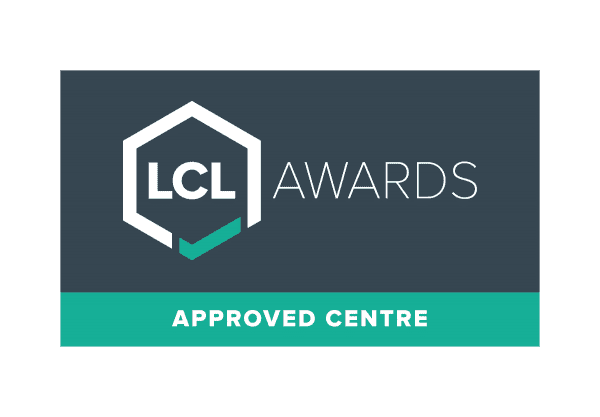Green Technologies
Upskilling, Reskilling & Innovation Support

South Eastern Regional College (SERC) is excited to provide a series of Green Technology programmes which are aimed at those in the energy and renewable sector who are looking to Upskill, Reskill & Innovate.
Further information on courses can be found by contacting Kelly Donnelly: E: kdonnelly@serc.ac.uk T: 07866 146 618
Blueflame OFT21-504D - Design of heat pump systems
The learner will:
- Know the health and safety risks and safe systems of work associated with heat pump system installation work (non-refrigerant circuits)
- Know the health and safety risks of heat pump refrigerants
- Know the requirements of relevant regulations/standards relating to practical installation, testing and commissioning activities for heat pump installation work (non-refrigerant circuits)
- Recognise and explain the types of low carbon central heating systems
- Understand and consider appropriate factors, prior to the installation of low carbon central heating appliances
- Understand the requirements of low carbon heating and hot water system installation
- Know the fundamental principles of heat pump selection and system design that are common to all heat pumps
- Know the handover procedures following the commissioning of heat pump systems.
- Understand and consider appropriate factors, prior to the installation of low carbon central heating appliances
- Size and select heat pump systems and components
- Size and select ground source ‘closed loop’ heat pump collector circuits and components
- Know the layouts of ‘open loop’ water filled heat pump collector circuits
- Know the layouts of ‘closed loop’ water filled heat pump collector circuits
- Know the fundamental design considerations and principles that are specific to air source heat pumps
- Know the fundamental design considerations and principles that are specific to ground source heat pumps
- Know the fundamental principles for ground source heat pump collector circuit design and component sizing
- Know the fundamental requirements for heat pump system design
Assessment: Assessment is via multiple choice theory papers and practically assessed worksheets.
Duration: 2 days
Location: SERC Holywood Zero Carbon Centre
Pre requistes: Applicants must hold a nationally recognised qualification and/or registration in a trade associated with heating and/or plumbing work or heat pump design work for a period of not less than two years. Or must have on the job heat pump design experience for a period of not less than two years.
Course link:oftec.org/technicians/industry-training/training-courses-assessments/oft21-504d-design-of-heat-pump-systems
LCL Awards Level 3 Award in the Installation and Maintenance of HeatPump Systems (non-refrigerant circuits)
The learner will:
LCL-R3035 Core Unit
- know what a heat pump is, the principle of the vapour compression system and system components
- The learner will know the different operational characteristics of each type of heat pump unit and system arrangement
- The learner will know the fundamental principles of heat pump efficiency and design selection that are common for heat pumps
- The learner will know the fundamental principles of domestic hot water cylinder selection and system design that are common for heat pumps
- The learner will know the fundamental principles of hydraulic system design that are common for heat pumps
- The learner will know the fundamental principles of heat pump controls
- The learner will know how to plan and prepare for the installation of heat pumps.
- The learner will know the requirements to install and test heat pump systems
- The learner will understand the requirements to commission heat pump system installations
- The learner will understand the requirements to handover heat pump system installations
- The learner will know the requirements for the handover of a heat pump installation
- The learner will know the requirements for routine service and maintenance of a heat pump system installation
- The learner will undertake fault diagnosis work on a heat pump system installation
LCL-R3036. Air Source Unit
- The learner will know the preparatory work required for the installation of an air source heat pump
- The learner will know the common requirements for the installation of an air source heat pump connected to hydraulic emitter circuits
- The learner will install heat pump units (non-refrigeration units)
- The learner will test and commission an air source heat pump system (non-refrigerant circuits)
- The learner will be able to undertake the non-refrigerant circuit routine service and maintenance of an air source heat pump system (non-refrigerant circuits)
Assessment: e-Assessment and practical scenarios
Duration: 3 days
Location: SERC Professional Skills Centre Dundrod/ SERC Holywood Zero Carbon Centre
Pre requisites: Learners holding a level 2 or 3 vocational qualification in the Building Engineering Sector which includes the current WRAS Water Regulations/Water Byelaws or equivalent will confirm their capability to complete the qualification.
See link for further information: Level 3 Air & Ground Source Heat Pump Systems Installation & Maintenance - LCL Awards
This regulated qualification is for learners wishing to achieve a regulated qualification in the Design, Installation and Commissioning of EESS. This qualification is in accordance with BS 7671 Requirements for Electrical Installations and the IET Code of Practice for Electrical Energy Storage Systems (EESS).
Learners undertaking this qualification will typically be updating their electrotechnical sector competence or undertaking continuous professional development.
This qualification has been updated to BS 7671:2018+A2:2022 Requirements for Electrical Installations and current industry requirements.
The learner will:
- know the key requirements for installation of EESS
- know and identify equipment, arrangements and operating modes of EESS
- know the requirements for design and installation of EESS
- be able to prepare for the installation of EESS
- be able to install EESS
- know the requirements for initial verification and handover of EESS
- be able to conduct initial verification and handover of EESS
Pre-requisites: Learners holding the following will confirm their suitability to enrol on the qualification.
- Level 3 Electrotechnical vocational qualification which includes the initial verification and certification of electrical installations
- BS 7671 Requirements for Electrical Installations (current edition) qualification.
Duration: 2 days
Location: SERC Holywood Zero Carbon Centre
Course Link:Level 3 Award in Electrical Energy Storage Systems - LCL Awards
The learner will:
- know the health and safety risks and safe systems of work associated with solar photovoltaic system installation work.
- know the requirements of the relevant regulations/ standards relating to practical installation, testing and commissioning activities for solar photovoltaic system installation work.
- know the fundamental differences between AC and DC circuits within solar photovoltaic systems.
- know the purpose of solar photovoltaic system components.
- know the types, silicon characteristics and typical conversion efficiencies of solar photovoltaic modules.
- know the fundamental design principles used to determine solar photovoltaic system module array size and position requirements.
- know the preparatory work required for solar photovoltaic system installation work.
- know the layouts and the requirements for installing solar photovoltaic module arrays.
- know solar photovoltaic system DC and AC circuit installation layouts within the scope of the relevant Engineering Recommendation for grid tied systems.
- know solar photovoltaic system protection techniques and components.
Pre-requisites
- Learners holding the following will confirm their suitability to enrol on the qualification.
- Level 3 Electrotechnical vocational qualification which includes the initial verification and certification of electrical installations, and a BS 7671 Requirements for Electrical Installations (current edition) qualification.
Course Link: Level 3 Installation of Small Scale Solar PV Systems - LCL Awards
Location: SERC Holywood Zero Carbon Centre
Duration: 3 days
This qualification is now updated to the 4th edition of the Code of Practise and is aimed at practicing electricians, electrical technicians and engineers with experience of electrical installations, and associated inspection and testing. This qualification covers the installation of dedicated conductive charging equipment for the charging of pure electric and plug-in hybrid electric road vehicles (PHEV) and includes the extended range of electric vehicles (E-REV). It covers the installation of both AC and DC charging equipment intended for plug-in electric vehicles (PEV) complying with BS EN 61851 and "The Code of Practice for Electric Vehicle Charging Equipment Installations".
Pre-requisites: Level 3 Electrotechnical vocational qualification which includes the initial verification and certification of electrical installations, and a BS 7671 Requirements for Electrical Installations (current edition) qualification.
Duration: 3 days
Location: SERC Newtownards
Course Link: Level 3 EV Charging Equipment Installation and Comissioning - LCL Awards
WRAS Water Regulations Certificate
The LCL Awards Water Regulations Certificate covers the Water Regulations (1999) and is a necessary requirement for qualified plumbers (minimum NVQ Level 2) looking to join their local water authorities Water Industry Approved Plumber Scheme. It is also a pre-requisite for several renewable technology qualifications.
The learner will:
The course is structured to include both self-study and centre based guided learning and covers the following syllabus:
- Background and legislation
- The water fittings regulations (England & Wales)
- Fluid categories
- Definitions
- Materials and substances in contact with water
- Requirements for water fittings
- Design and installation requirements
- Prevention of cross connection
- Backflow prevention
- Cold water services
- Hot water services
- WC's, flushing and urinals
- Baths sinks and wash basins
- Domestic appliance consumption limits
- Water supplied for outside use (agricultural or similar)
- Hygienic work practices
- Installation of supply pipes
- Approved contractors
Pre-requisites:
Plumbers should normally have a minimum of two
years
experience in the sector.
Duration: 1 day
Location: SERC Holywood Zero Carbon Centre / SERC Professional Skills Centre Dundrod / SERC Newtownards
Course link: WRAS Water Regulations Qualifications and Course - LCL Awards
The hot water systems and safety course is aimed at experienced plumbing and heating operatives who require a qualification in the installation, servicing and maintenance of hot water systems. HWSS has been developed to ensure operatives are aware of how to comply with Approved Document G (ADG) 2016 when carrying out work on hot water systems. Training includes requirements for the installation of G3 Unvented Hot Water Systems and covers systems up to 500 litres capacity and 45kW power input.
The learner will:
Be trained and assessed in the following areas:
- Regulations, standards and guidelines
- Theory of understanding of expansion of hot water (HW)
- Principles of HW storage
- Design considerations
- Components and function
- Safety controls, discharge and integration
- Installation of HW systems
- Maintenance and servicing of HW systems including
- Unvented HWS
- Health and safety considerations
Pre-requisites:
It is essential that HWSS candidates will be
experienced in the installation of cold and hot water systems. It is also essential that
they hold one DCLG recognised competency in a conventional fuel i.e. gas, oil or solid
fuel;
or for those in the plumbing field an NVQ level 2 or equivalent plumbing qualification
or
experience.
Duration: 1 day
Location: SERC Holywood Zero Carbon Centre/ SERC Professional Skills Centre Dundrod/ SERC Newtownards
Course Link: Hot Water System and Safety Unvented Qualification - LCL Awards
The purpose of this Low Energy Building Course is to create an awareness of both new and retrofit dwellings that are high quality, safe and fit for the future. This course aims to clarify the impacts and timescales of Low Energy Buildings and to get the candidate thinking about how to prepare for what should be the most radical shake-up of the energy efficiency of domestic dwellings within both the construction and building services industry in a generation.
- Lower U-Values by improving Insulation throughout the entire
- Continuous Airtight seals such Wind/Vapour
- Thermal Bridging both in Wall and Window
- High Performance External Doors and
- Mechanical Ventilation and Heat
Pre-requisites: Desirable construction or engineering background
Duration: 1 day
Location: SERC Holywood Zero Carbon Centre
Hydrogen Awareness – brief introduction to the current gas network, pipework systems, meters, regulators and appliance types. History of Hydrogen use and recent developments. UK Government Strategy for Net Zero 2050. Properties of Hydrogen. Manufacturer of Hydrogen - Grey, Blue and Green. Combustion in Hydrogen - Dangers of H2 use. Gas infrastructure innovation. Appliance innovation. Pure gas pipework systems, limitations and consideration of material types.
Pre-requisites: Desirable construction or engineering background
Duration: 1 day
Location: SERC Holywood Zero Carbon Centre
This course is for staff involved in the operation of building water systems within hospitals and healthcare environments. This includes Plumbing Installers, Heating Technicians, Design Engineers, Maintenance Personnel as well as staff responsible for Infection Control and Water Treatment
services. Some of the content involved in the course will be: How to improve patient safety in daily work duties by work processes, The microbiology and health effects of water borne bacteria that can cause harm to human health, Prevention and control of the risks associated with the management of water –borne bacteria, Application of relevant legislation within day-to-day duties, Ability to understand and demonstrate the correct protocols for working on and around water systems within healthcare, How to communicate, manage and understand how actions impact on the protection of vulnerable patients, Practical workshop demonstrations on fault identification and processes will be included on the course as well.
Duration: 1 day
The Legionella Prevention and Water Treatment course is designed to help plumbers; operators and managers comply with the Code of Practice. The course will help learners comply with their legal duties including identifying and assessing sources of risk, preparing a scheme to prevent or control risk, implementing, managing and monitoring precautions and keeping records of control measures taken.
Pre-requisites: Although there are no formal pre-requisites to this qualification, applicants should be working within the industry.
Duration: 1 Day
The aim of the OCN NI Level 5 Award, Certificate and Extended Certificate in Green Technologies is to provide the learner with an understanding of the application of green technologies including installation practices and processes.
- Solar Photo Voltaic Systems (9 Credits)
- Anaerobic Digestion (10 Credits)
- Solar Thermal Decarbonisation of Hot Water Systems (8 Credits)
- Electrical Vehicle Charging Systems (10 Credits)
- Ground and Air Source Heat Pumps (10 Credits)
- Hydrogen Production Systems and Technologies (10 Credits)
- Sustainable Alternative Biofuels (7 Credits)
- Electrical Energy Storage Systems (9 Credits)
All units have a mix of both practical and theory training and also require online assignments completion as well as practical assessments.
Location: SERC Holywood Zero Carbon Centre for practical assessment with online sessions for theory training
Building energy retrofitting provides substantial opportunities to reduce the level of building energy consumption, saves cost, improves comfort level, and mitigates greenhouse gas emissions. Building retrofitting is a form of technical intrusion in the energy system of a building to effectively utilize its energy. Retrofitting homes not only cuts carbon emissions, but it also makes it cheaper to heat our homes and overcomes issues around poor ventilation and damp. This helps lift people out of fuel poverty and reduces health problems associated with cold homes.
The operation of buildings accounts for around 15% of UK carbon emissions. A considerable portion of which is attributable to our homes. Reducing carbon emissions from existing homes represents one of the biggest challenges facing the UK in our transition to a net zero economy by 2050. In fact, greening the UK's housing stock would mean retrofitting 1 million homes every single year for the next 30 years. Comprises a mix of online learning and assignments with 4 optional units which have practical training and practical assessments.
- Unit 001: Demonstrate an Understanding of Domestic Deep Energy Retrofit (GLH 5) 1 credit
- Unit 002: Evaluate existing domestic buildings for Retrofitting (GLH 15) 3 credits
- Unit 003: Determine Thermal Efficiency & Moisture Risks within Retrofit Buildings (GLH 30) 6 credits
- Unit 004: Improvement Options for Retrofit Buildings (GLH 15) 3 credits
- Unit 005: Air Tightness and Ventilation in Retrofit Buildings (GLH 15) 3 credits
- Unit 006: Upgrading Insulation of Roofs and Floors during Retrofit (GLH21) 5 credits
- Unit 007: Reducing the thermal transmittance of Walls and Windows (GLH 21) 3 credits
- Unit 008: Upgrading the Mechanical and Electrical Services during Retrofit. (GLH 19) 3 credits
- Unit 009: Introducing renewable energy systems and storage to Retrofit Projects (GLH 19) 3 credits
- Unit 010: Retrofit Quality Assurance and Post Retrofit Monitoring (GLH 05) 3 credits
Location: SERC Holywood Zero Carbon Centre for practical assessment with online sessions for theory training
Learners will be introduced to the scope and opportunities offered within the construction industry for those working on retrofit. Learners will also develop knowledge of the requirements of the roles involved in retrofit.
This will include specific responsibilities in retrofit. Learners will develop their knowledge of retrofit in practice (PAS 2035) and how these impacts on the installation and preparation for a property retrofit system.
Learning outcomes:
- LO1: Understand safe working practices for the retrofit industry
- LO2: Understand the benefits of PAS 2035 when working in the retrofit industry
- LO3: Understand the impact of PAS 2035 in the retrofit industry
Duration: 2 days
Location: SERC Holywood Zero Carbon Centre
Course Link: Retrofit qualifications and training courses | City & Guilds (cityandguilds.com)
All Construction Skills Register (CSR) skilled cards or above that were originally issued based on an occupational assessment (Grandfather rights) and Industry Accreditation will expire on 31 December 2024. Once these cards expire (on 31 December 2024) candidates will then have to be registered on or have achieved an NVQ Level 3 or 4 qualification (applicable to the card level they are applying for e.g. NVQ Level 3 for gold craft card) based on their occupation.
This qualification is aimed at those who have responsibility for organising and supervising work on construction sites, including the planning and controlling of work methods, allocation of equipment, personnel and materials, and ensuring work is completed to the required standard and ensuring communication is clear and effective.
Course: Construction Skills Register





Interested in Gas / Oil courses? CLICK HERE
